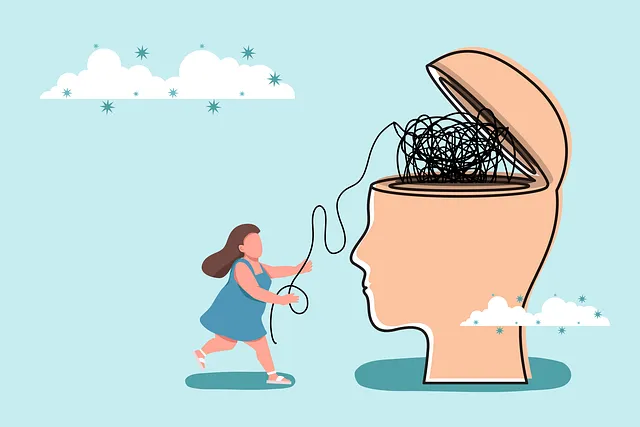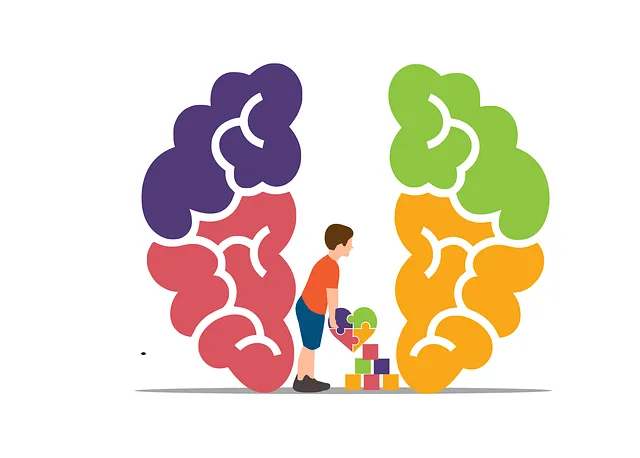Depression, a serious mental health condition with risk factors including genetics and life events, requires holistic approaches like the Kaiser mental health classes in Arvada. These classes offer education, skill-building, and community support to combat depression and reduce stigma. Combining lifestyle interventions like exercise, diet, and sleep with culturally sensitive practices enhances mood management and resilience. The program's effectiveness lies in crisis intervention guidance and mental illness stigma reduction efforts, empowering individuals to navigate life's challenges with adaptability.
Depression affects millions worldwide, but prevention is achievable. Understanding depression’s signs and risk factors is the first step towards recovery. This article explores comprehensive strategies for avoiding this debilitating condition. From recognizing subtle symptoms to adopting holistic lifestyle changes, we provide valuable insights. Additionally, we highlight the effectiveness of Kaiser Mental Health Classes Arvada as a powerful resource for proactive mental well-being. Embrace these approaches to build resilience and safeguard your mental health.
- Understanding Depression: Recognizing Signs and Risk Factors
- Kaiser Mental Health Classes Arvada: An Effective Resource for Prevention
- Lifestyle Interventions: Holistic Approaches to Boosting Resilience
Understanding Depression: Recognizing Signs and Risk Factors

Depression is a serious mental health condition that significantly impacts an individual’s daily life and well-being. Understanding depression involves recognizing its signs and being aware of potential risk factors, which can vary from person to person. Early identification is crucial for effective management and treatment. Common symptoms include persistent feelings of sadness, loss of interest in activities once enjoyed, changes in appetite and sleep patterns, fatigue, difficulty concentrating, and thoughts of death or suicide.
Risk factors for depression encompass a complex interplay of genetic predisposition, environmental triggers, and personal circumstances. For instance, individuals with a family history of depression may be more susceptible. Stressful life events, such as loss of a loved one, financial difficulties, or major life transitions, can contribute to the onset of depression. Additionally, cultural sensitivity in mental healthcare practice plays a vital role in recognizing and addressing depressive symptoms, especially among diverse communities. The Kaiser mental health classes in Arvada offer valuable resources for individuals seeking support and education about depression prevention strategies, self-esteem improvement, and risk management planning for mental health professionals.
Kaiser Mental Health Classes Arvada: An Effective Resource for Prevention

Kaiser Mental Health Classes Arvada offer a powerful tool in the battle against depression and mental illness stigma. These classes are designed to provide individuals with valuable knowledge, skills, and support networks, empowering them to recognize and address early signs of depression and other mental health concerns. Through interactive sessions, participants gain insights into mental wellness, learn coping strategies, and develop resilience.
The program’s effectiveness lies in its holistic approach, combining education, skill-building, and community engagement. By offering Crisis Intervention Guidance and Mental Illness Stigma Reduction Efforts, these classes foster a supportive environment where individuals feel comfortable discussing their experiences and seeking help. The result is enhanced mental health awareness and an increased ability to navigate life’s challenges with resilience and adaptability.
Lifestyle Interventions: Holistic Approaches to Boosting Resilience

Lifestyle interventions offer a holistic approach to depression prevention and play a crucial role in fostering resilience. Engaging in regular physical activity, maintaining a balanced diet, and prioritizing quality sleep are foundational practices that significantly impact mental well-being. The Kaiser mental health classes in Arvada, for instance, emphasize these lifestyle changes as key components of their programs, aiming to empower individuals with practical tools for stress management.
Beyond biological factors, cultural sensitivity in mental healthcare practice is essential. Recognizing and addressing individual cultural beliefs and values can enhance the effectiveness of mood management strategies. Workshops focused on stress management, organized by organizations dedicated to mental health awareness, provide valuable spaces for learning coping mechanisms tailored to diverse lifestyles. These initiatives contribute to a comprehensive understanding of depression prevention, ensuring that resilience-building efforts are accessible and culturally sensitive.
In addressing depression prevention, a multi-faceted approach is key. While understanding depression and recognizing signs are crucial first steps, utilizing resources like the Kaiser Mental Health Classes in Arvada can significantly enhance resilience. Combining these with holistic lifestyle interventions offers a comprehensive strategy to combat this common mental health challenge. By adopting evidence-based practices, individuals can take control of their well-being and foster a healthier, more balanced life.






